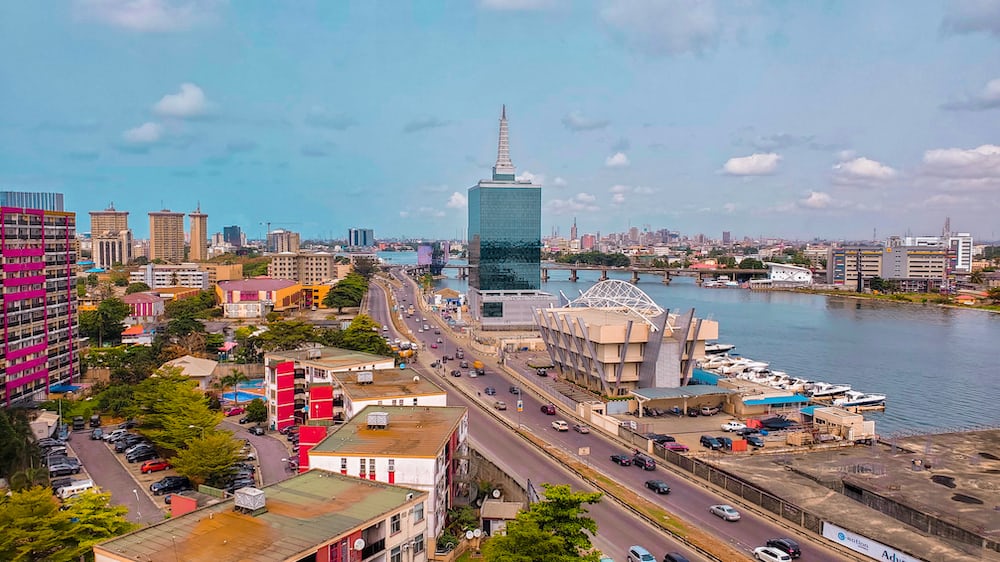Nigeria, often referred to as the “Giant of Africa,” boasts a cultural tapestry that is as diverse as it is captivating. With over 250 ethnic groups, each with its own languages, traditions, and artistic expressions, Nigeria stands as a shining example of cultural richness. Beyond its abundant natural resources, the country’s vibrant cultural heritage presents a golden opportunity for investment in the tourism and hospitality industry.
Tourism and hospitality are not mere industries; they are engines of economic growth and cultural exchange. The potential benefits are manifold: increased employment opportunities, revenue generation, infrastructure development, and the preservation of heritage. Nigeria’s unique cultural offerings position the nation as a destination that can offer visitors an authentic experience like no other. This blog post aims to delve into the realm of investment potential within Nigeria’s rich culture, unlocking opportunities that can drive both economic prosperity and the preservation of this cultural legacy.
In the pages that follow, we will explore the multifaceted nature of Nigeria’s cultural landscape and how it intertwines with the tourism and hospitality sectors.
Celebrating Diversity and Heritage
Nigeria’s cultural landscape is a vivid tapestry woven together by the threads of its diverse ethnic groups, languages, and traditions. From the bustling markets of Lagos to the serene landscapes of the Niger Delta, each region contributes its unique flavour to the country’s rich identity. Nigerian culture is a symphony of colours, sounds, and tastes that enchant and captivate all who experience it.
Festivals, Arts, and Crafts
Festivals are a vibrant expression of Nigeria’s cultural heritage, offering a kaleidoscope of music, dance, and rituals. The Durbar festival in Kano, the Eyo festival in Lagos, and the New Yam Festival in the eastern states are just a few examples of the nation’s celebrated events. These gatherings not only showcase the diversity of traditions but also provide a platform for local artists, craftsmen, and performers to exhibit their talents.
Historical Landmarks and UNESCO World Heritage Sites
Nigeria’s history is etched into its landscape, with ancient cities and historical landmarks that tell tales of centuries past. The city of Ile-Ife is renowned for its intricate bronze sculptures, while the ancient city of Benin boasts the impressive walls and moats that once protected the kingdom. Notably, the Osun-Osogbo Sacred Grove stands as a UNESCO World Heritage Site, a testament to Nigeria’s commitment to preserving its cultural treasures.
A Global Audience Awaits
In a world where travellers seek authentic experiences that go beyond the ordinary, Nigeria’s cultural offerings have the potential to captivate a global audience. Tourists with a thirst for cultural immersion can indulge in the rhythms of Afrobeat music, the flavours of Nigerian cuisine, and the mastery of local artisans. The allure of experiencing traditions that have been passed down through generations draws inquisitive explorers to Nigeria’s shores.
Current State of Nigerian Tourism and Hospitality
A World of Potential and Challenges
As the sun rises on Nigeria’s cultural landscape, the potential for its tourism and hospitality sectors shines brightly. However, the journey to unlock this potential is not without its hurdles. Understanding the current state of these industries is crucial for charting a course toward sustainable growth and investment.
Tourism Statistics and Trends
Nigeria’s tourism industry has shown promise in recent years, attracting both international and domestic visitors. From the bustling streets of Lagos to the serene beauty of Jos Plateau, travellers are drawn to the nation’s unique experiences. The growth of the middle class in Nigeria has also contributed to an increase in domestic tourism, with citizens exploring their own country’s diverse offerings.
Challenges on the Path Forward
Despite the promises of growth, the tourism and hospitality sectors face several challenges. Inadequate infrastructure, including transportation and accommodation facilities, remains a pressing concern. Security issues, often exacerbated by negative perceptions in the media, deter potential visitors. Marketing efforts have been inconsistent, failing to adequately showcase Nigeria’s cultural richness to a global audience.
Initiatives for Progress
Nigeria is not resting on its laurels in the face of these challenges. The government has recognized the importance of the tourism sector and has implemented policies to encourage investment and development. Private sector initiatives, such as hospitality chains and cultural event organisers, are also making strides in enhancing the tourism experience. These efforts, however, are just the beginning of the journey toward realising the full potential of Nigeria’s cultural wealth.
Unlocking the Doors to Cultural Tourism
In a world where travellers seek experiences that engage their senses and enrich their understanding of the world, Nigeria’s unique culture presents a treasure trove of opportunities for investment. As the global trend of cultural tourism continues to gain momentum, Nigeria stands poised to capitalise on its distinctive offerings.
Rising Interest in Cultural Tourism
Cultural tourism has evolved from a niche interest to a mainstream trend, with travellers seeking authentic, immersive experiences that connect them to the essence of a destination. This aligns perfectly with Nigeria’s diverse cultural tapestry. Whether it’s participating in local festivals, indulging in traditional cuisine, or immersing oneself in indigenous art forms, Nigeria’s offerings cater to the growing demand for unique and memorable travel experiences.
Showcasing Nigeria’s Unique Selling Points
From the pulsating rhythms of Afrobeat music to the intricate patterns of Nigerian fashion, the country’s cultural identity is a powerful magnet for travellers. Nigerian cuisine, known for its bold flavours and variety, has the potential to become a culinary destination in its own right. Moreover, the untamed beauty of Nigeria’s landscapes, from the savannahs of the north to the Niger Delta wetlands, offers opportunities for ecotourism and adventure tourism.
Cultural Preservation and Sustainability
Investing in Nigeria’s culture goes beyond financial gain. It’s also a means of preserving and celebrating heritage. By supporting local artists, artisans, and communities, investors can contribute to the sustainable development of cultural assets. Moreover, sustainable practices can ensure that these cultural treasures are safeguarded for generations to come.
The Path Forward
For those with an eye for opportunity, Nigeria’s cultural riches beckon. From boutique hotels that offer guests an authentic taste of local life to tour companies that curate immersive cultural experiences, the possibilities are limitless. As the world continues to prioritise experiences over possessions, investing in Nigeria’s cultural tourism sector is not only a smart business move but also a way to foster cross-cultural understanding and appreciation.
Government Incentives and Support

Partnering for Prosperity: The Role of Government in Tourism Investment
Investment in Nigeria’s tourism and hospitality sector has received a boost from various initiatives and policies rolled out by both the government and the private sector. These collaborative efforts are crucial for creating an environment conducive to growth and sustainability.
1. Government Policies and Incentives
The Nigerian government has recognized the immense potential of tourism and has taken steps to encourage investment in the sector. Policies have been crafted to streamline processes for investors, ranging from obtaining permits to facilitating land acquisition for tourism projects. Additionally, tax incentives, grants, and funding opportunities are being extended to businesses that contribute to the growth of the tourism industry.
2. Public-Private Partnerships
Collaboration between the public and private sectors has proven to be a driving force behind the success of tourism and hospitality initiatives. From infrastructure development to marketing campaigns, these partnerships pool resources, expertise, and networks to create a synergy that benefits both investors and the nation as a whole. The government’s focus on creating an enabling environment and the private sector’s innovative ideas combine to create a powerful engine for growth.
3. Capacity Building and Skill Development
To ensure the sustainability of the tourism and hospitality industry, skill development and capacity building initiatives are essential. The government and private organisations are investing in training programs that equip individuals with the necessary skills to excel in various roles within the industry. This not only enhances the quality of services offered but also contributes to job creation and economic empowerment.
4. Showcasing Nigeria’s Positive Image
Government bodies are actively working to address negative perceptions and concerns that may deter tourists and investors. By promoting the positive aspects of Nigeria’s culture, heritage, and experiences, they aim to reshape the narrative and attract a global audience. The promotion of festivals, cultural events, and attractions serves as a testament to Nigeria’s commitment to showcasing its vibrant identity to the world.
The Path Ahead
The collaborative efforts between the government and the private sector underscore a shared vision for the growth of Nigeria’s tourism and hospitality industry. As investments pour in and initiatives continue to unfold, the nation is set to unlock its full potential as a cultural and tourism hotspot. By nurturing these partnerships and fostering an ecosystem of support, Nigeria stands on the brink of a transformative era for its cultural and economic landscape.
Investment Considerations
Navigating the Path to Cultural Tourism Investment
Investing in Nigeria’s cultural tourism sector holds promise, but it’s important for potential investors to navigate this landscape with careful consideration. From understanding the market to building sustainable relationships, several factors come into play when seeking to capitalise on the investment potential within Nigeria’s unique culture.
1. Market Research and Demographics
Thorough market research is the foundation of any successful investment venture. Understanding the preferences and behaviours of your target audience—whether domestic or international travellers—will guide your offerings and strategies. Identify trends, preferences, and gaps in the market to tailor your business approach effectively.
2. Community Collaboration
Cultural tourism isn’t just about showcasing the destination; it’s about engaging with the local communities and respecting their traditions. Collaborating with local communities fosters authenticity, supports sustainable development, and ensures that the benefits of tourism are distributed widely. Building positive relationships with communities can lead to a mutually beneficial partnership.
3. Technological Integration
In today’s digital age, technology plays a pivotal role in enhancing guest experiences. From seamless online booking platforms to interactive virtual tours, incorporating technology can significantly elevate your offerings. Providing tech-savvy solutions ensures that your guests have a memorable and convenient experience during their visit.
4. Sustainability and Responsible Tourism
Investing in Nigeria’s cultural tourism sector should align with the principles of sustainability and responsible tourism. Minimise environmental impacts, engage in ethical practices, and prioritise the well-being of local communities. By adopting these values, you contribute to the preservation of Nigeria’s cultural heritage and create a positive reputation for your venture.
5. Cultural Sensitivity and Education
Cultural awareness and sensitivity are paramount when engaging with diverse audiences. Educate yourself and your staff about the cultural nuances, traditions, and practices of the regions you operate in. Showcasing respect and appreciation for Nigeria’s cultural heritage will resonate positively with visitors and contribute to their enriching experiences.
6. Flexible Marketing and Branding
A dynamic marketing and branding strategy is essential for attracting and retaining customers. Create a brand that resonates with the cultural identity of Nigeria while also appealing to the interests of your target audience. Be adaptable in your marketing efforts to respond to changing trends and consumer preferences.
The Investment Journey
Investing in Nigeria’s cultural tourism sector is a journey filled with both opportunities and challenges. By carefully considering these factors and making informed decisions, you can position yourself to not only reap the rewards of your investment but also contribute to the growth and preservation of Nigeria’s unique cultural legacy.
Challenges and Mitigation Strategies
Nurturing Growth: Overcoming Challenges in Cultural Tourism Investment
While the investment potential in Nigeria’s cultural tourism sector is vast, it’s essential to acknowledge and address the challenges that may arise along the way. By proactively implementing mitigation strategies, investors can navigate these hurdles and contribute to the sustainable growth of the industry.
1. Addressing Security Concerns
Safety and security concerns are often cited as deterrents for potential visitors. Mitigate these concerns by collaborating with local authorities and ensuring that your property or establishment adheres to strict security measures. Communicate safety protocols to guests to alleviate their worries and create a secure environment.
2. Infrastructure Development
Inadequate infrastructure, including transportation and connectivity, can hinder the growth of tourism. To address this challenge, explore partnerships with local authorities and private companies to improve accessibility. Contributing to infrastructure development not only benefits your business but also supports the overall growth of the destination.
3. Cultural Preservation and Authenticity
Balancing the desire for modern amenities with the need to preserve cultural authenticity can be challenging. Strive to maintain a respectful balance that enhances the guest experience while honouring the traditions of the destination. Collaborate with local experts to create experiences that are both culturally enriching and appealing to modern travellers.
4. Marketing and Perception
Negative media coverage can impact the perception of a destination. Counter this by focusing on positive storytelling and showcasing the vibrant aspects of Nigeria’s culture. Utilise social media, travel blogs, and influencer partnerships to create a positive image that resonates with potential visitors.
5. Community Engagement and Sustainability
Creating a positive impact on local communities requires continuous engagement and sustainable practices. Prioritise responsible tourism that benefits the community economically, socially, and culturally. Involve local communities in decision-making processes and share the benefits of tourism with them.
6. Overcoming Cultural Barriers
Cultural differences can sometimes lead to misunderstandings. Invest time and effort in cultural sensitivity training for your staff to ensure that interactions with guests are respectful and enriching. Building cross-cultural bridges can lead to more meaningful experiences for visitors.
The Path Forward
Challenges are inherent in any investment endeavour, but they can be surmounted with careful planning, proactive strategies, and a commitment to sustainable practices. By navigating these challenges thoughtfully, investors can contribute to the development of a vibrant and thriving cultural tourism sector in Nigeria.
Future Outlook and Potential Returns
A Promising Horizon: The Evolution of Nigeria’s Tourism and Hospitality Landscape
As we look to the future, the prospects for Nigeria’s tourism and hospitality industry shine brightly. The transformative power of cultural tourism has the potential to reshape the nation’s economy, empower local communities, and foster cross-cultural understanding. By investing in Nigeria’s unique cultural offerings, we are sowing the seeds for a more prosperous and interconnected future.
1. Predicted Growth and Economic Impact
Experts predict a steady growth trajectory for Nigeria’s tourism and hospitality industry. With increasing global interest in cultural experiences, Nigeria’s rich tapestry of traditions, festivals, and arts is poised to attract a diverse range of visitors. This growth doesn’t just benefit investors; it contributes to job creation, economic diversification, and enhanced infrastructure development.
2. Local Empowerment and Job Creation
The tourism and hospitality sector is a powerful generator of employment opportunities, particularly in local communities. By investing in accommodations, attractions, and services, investors directly contribute to job creation and skill development. This, in turn, fosters economic empowerment and improves the quality of life for local residents.
3. A Bridge of Cultural Exchange
Cultural tourism isn’t just about numbers and revenue; it’s about fostering understanding and appreciation among different cultures. Through meaningful interactions with local communities and immersion in their traditions, visitors gain insights into the heart and soul of Nigeria. This cultural exchange can help break down stereotypes, promote tolerance, and contribute to a more interconnected world.
4. Long-Term Sustainability
Sustainable practices and responsible tourism are pivotal for the long-term success of Nigeria’s cultural tourism sector. By preserving natural resources, respecting cultural heritage, and engaging in ethical business practices, investors can ensure that the industry thrives for generations to come. The positive impact extends beyond financial gains to leave a lasting legacy of cultural preservation and economic growth.
Embracing the Opportunity
Investing in Nigeria’s cultural tourism and hospitality industry is not just a financial decision; it’s a commitment to the preservation and celebration of a nation’s identity. By aligning with the global trend of seeking immersive and authentic experiences, investors have the chance to play a pivotal role in unlocking Nigeria’s investment potential and contributing to its cultural renaissance.
Conclusion
As we close the chapters of our exploration into the investment potential within Nigeria’s unique culture, we are left with a profound appreciation for the nation’s vibrant heritage. From its diverse ethnic groups to its rich traditions and artistic expressions, Nigeria stands as a testament to the beauty of human creativity and resilience.
The journey we’ve embarked upon has illuminated the transformative power of cultural tourism and hospitality. We’ve seen how investment in Nigeria’s cultural treasures can stimulate economic growth, preserve heritage, and foster global understanding. Each investment is more than a financial commitment; it’s a pledge to celebrate and uplift the rich tapestry of Nigeria’s identity.
As you reflect on the insights shared in this blog post, we invite you to consider your role in shaping Nigeria’s cultural and economic narrative. Whether you’re a visionary entrepreneur, an investor with a heart for sustainable growth, or an advocate of cross-cultural exchange, your contributions matter. Together, we can build a future where Nigeria’s cultural heritage shines brightly on the global stage.












